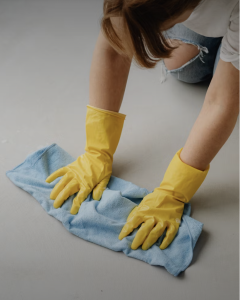I give frequent talks to parents on issues related to technology. After my presentations, parents ask for advice in managing their children’s behavior. I hear similar questions and worries everywhere I go, with slight variations depending on the population of my audience. However, I am nearly always met with one specific concern that comes in response to my more challenging suggestions, the ones our kids don’t like.
It goes like this: parent asks a question about  something their kid is doing or wants to do with technology, something they’re worried about, usually the amount of time the child want to use or the kind of tech he/she is using. I respond with a suggestion or intervention that requires limit-setting and a set of guidelines for incorporating that change. Parent then says some form of this: “But if I do what you’re suggesting, I’m going to be yelled at or hated by my kid; it’s going to cause a huge problem.” I usually smile and say yes. This however seems to confuse the said parent, as if they’re waiting for me to offer a solution to their problem that doesn’t require discomfort or disagreement, a policy that’s easy to implement. I then deliver the following, sometimes surprising news alert: “As a parent, you’re not supposed to be your child’s friend.”
something their kid is doing or wants to do with technology, something they’re worried about, usually the amount of time the child want to use or the kind of tech he/she is using. I respond with a suggestion or intervention that requires limit-setting and a set of guidelines for incorporating that change. Parent then says some form of this: “But if I do what you’re suggesting, I’m going to be yelled at or hated by my kid; it’s going to cause a huge problem.” I usually smile and say yes. This however seems to confuse the said parent, as if they’re waiting for me to offer a solution to their problem that doesn’t require discomfort or disagreement, a policy that’s easy to implement. I then deliver the following, sometimes surprising news alert: “As a parent, you’re not supposed to be your child’s friend.”
We are living in a time when, as parents, we’re supposed to be our children’s best friends at the same time we’re being their parents. Moms and dads hang out with their kids as if they’re hanging out with peers. When there’s a disagreement, parents believe we’re supposed to negotiate with our kids as if we’re negotiating with equals. Parents of seven-year-olds report to me (with a straight face) all the reasons their child doesn’t agree with their decisions regarding the child’s behavior. I see parents of children under the age of five who get an equal vote in setting up the rules of the house, which includes the rules that will apply to the children. I hear the delight of parents who are friended by their kids on social media. We’re spoon-fed the message that we’re supposed to be buddies with our kids and that they should like us, all the time. And, that we’re bad parents if they are upset by our decisions.
We have thrown away the distinction between an adult and a child, undermined the wisdom of our adult experience, all so that we can be liked by our kids. We’re choosing to be our children’s playmates rather than to do what’s best for them. There’s no wonder kids now hurl profanities at their parents in public places, to which the parents giggle awkwardly, and wonder if this too is part of the new hip friend/parent milieu.
As parents, we’re taking the easy path, the path of least resistance, telling ourselves that if our kids like us we must be doing this parenting thing right. In the process of trying to be friends with our kids however, we are giving away our authority, depriving them of the experience of being taken care of, denying them the serenity, trust, and confidence that arises from knowing that we can stand our ground and protect them even when it incites their anger. It is precisely because we love our children that we need to be able to tolerate their not liking us all the time.
When we’re driven by the desire or responsibility to be liked, we’re giving ourselves an impossible task. We simply cannot prioritize being liked and simultaneously raise healthy, sane, human beings who can tolerate frustration and disappointment. We are setting ourselves up for suffering and failure. We survive on the ephemeral crumbs of being liked—liked for giving them what they want, while denying ourselves the real nourishment of the experience of providing our kids with what we know they really need, pleasing or otherwise. We are, as with many other things, opting for the easiest, most immediate and pleasurable option over the deeper, harder, and more thoughtful and ultimately satisfying choice.
We are also, in this friending over parenting process, doing a great disservice to our kids. Our kids need boundaries and guidelines. A woman I work with who was raised by a parent who, above all, wanted to be her friend, put it this way: “I never felt like there was someone to stop me if I got to the end of the earth and was going to dive off.” Our kids, even though they may scream and throw things, also want us to know things they don’t, to stick with our wisdom despite their railing, to be willing to tolerate their rants in service to their best interests—to take care of them in ways they can’t yet take care of themselves. Our kids want us to demonstrate fierce grace. So too, we feel our best when we walk the walk of fierce grace.
Often, children do not know what’s best for them, and almost never do they know what’s best for them when it comes to technology use. It’s hard enough for us grownups to realize what’s best for ourselves and children have front brains that are not anywhere near fully-developed. Allowing children to make their own rules around technology is like handing an opioid addict a vial of heroin or a bottle of oxycontin and asking him to make his own rules whether or not to us. Young children and teenagers should not get an equal vote in matters that relate to their tech use, nor in many other matters. As parents, we usually possess at least a couple or more decades of experience under our belt that our children don’t possess. Put simply, we know things they don’t, and we can tell them this truth. This makes our kids not equal in matters that require discipline or hard choices, ones that go against what their brains’ pleasure centers, hormones, or inexperienced thinking tells them is best.
Remember this: it’s okay for your child to be upset with you; it’s okay if they don’t like or agree with the decisions you make; it’s okay if your child is madder than a wet hornet at you for setting limits and sticking to those limits. You’re allowed to say no; it takes great courage to say no. You’re not a bad parent if it gets bumpy and your child goes through periods when he/she doesn’t like you—at all—and maybe even says she hates you for a while. It probably means you’re doing your job as a parent.
Assuming your role as the authority in your child’s life is critical and the more you assume that role, the more you will feel the wisdom of your own authority. Being the authority doesn’t mean turning a deaf ear to your child’s anger, disappointment, or anything else they feel. We can listen to our kids’ emotions and thoughts while simultaneously holding our ground on what we know is best for them. Being the authority in your kid’s life doesn’t mean being callous or insensitive, it does mean being brave enough to stay strong in the face of a tsunami that might come back at you, knowing that your role is to be the grown up in the parent-child relationship, to be loving in your willingness to do what’s best for your kids. Your role is not to be your child’s friend.


